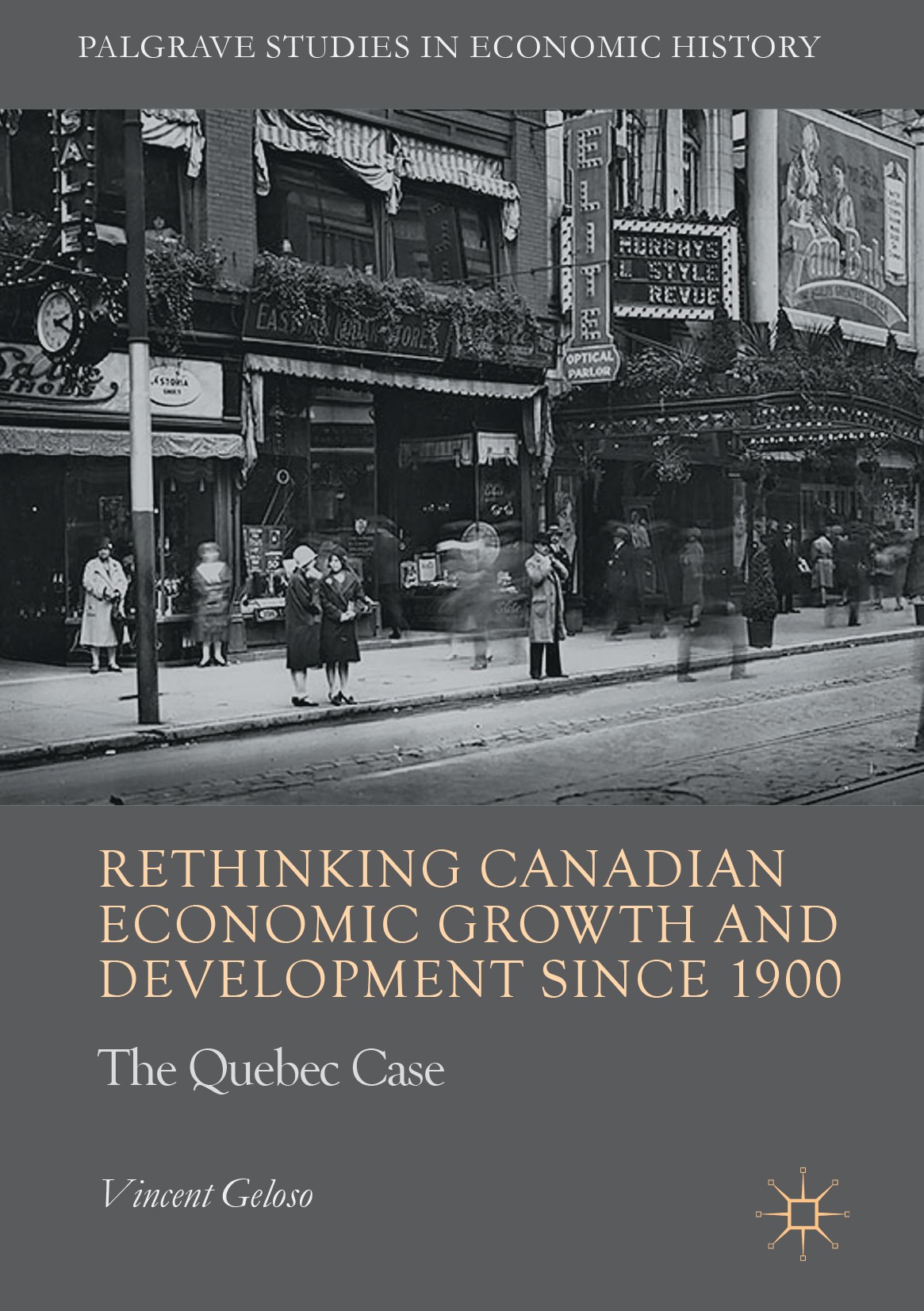| 书目名称 | Rethinking Canadian Economic Growth and Development since 1900 |
| 副标题 | The Quebec Case |
| 编辑 | Vincent Geloso |
| 视频video | http://file.papertrans.cn/829/828978/828978.mp4 |
| 概述 | Argues against the ‘Great Darkness‘ thesis that states Quebec was backwards before 1960 by demonstrating through cliometrics that Quebec actually closed the gap between itself and the rest of Canada ( |
| 丛书名称 | Palgrave Studies in Economic History |
| 图书封面 |  |
| 描述 | This book upturns many established ideas regarding the economic and social history of Quebec, the Canadian province that is home to the majority of its French population. It places the case of Quebec into the wider question of convergence in economic history and whether proactive governments delay or halt convergence. .The period from 1945 to 1960, infamously labelled the Great Gloom (Grande Noirceur), was in fact a breaking point where the previous decades of relative decline were overturned – Geloso argues that this era should be considered the Great Convergence (Grand Rattrapage). In opposition, the Quiet Revolution that followed after 1960 did not accelerate these trends. In fact, there are signs of slowing down and relative decline that appearafter the 1970s. The author posits that the Quiet Revolution sowed the seeds for a growth slowdown by crowding-out social capital and inciting rent-seeking behaviour on the part of interest groups. . |
| 出版日期 | Book 2017 |
| 关键词 | Real wage; New institutional economics; Cliometrics; Public choice theory; Great gloom thesis; Comparativ |
| 版次 | 1 |
| doi | https://doi.org/10.1007/978-3-319-49950-5 |
| isbn_softcover | 978-3-319-84282-0 |
| isbn_ebook | 978-3-319-49950-5Series ISSN 2662-6497 Series E-ISSN 2662-6500 |
| issn_series | 2662-6497 |
| copyright | The Editor(s) (if applicable) and The Author(s) 2017 |
 |Archiver|手机版|小黑屋|
派博传思国际
( 京公网安备110108008328)
GMT+8, 2026-1-10 14:52
|Archiver|手机版|小黑屋|
派博传思国际
( 京公网安备110108008328)
GMT+8, 2026-1-10 14:52


